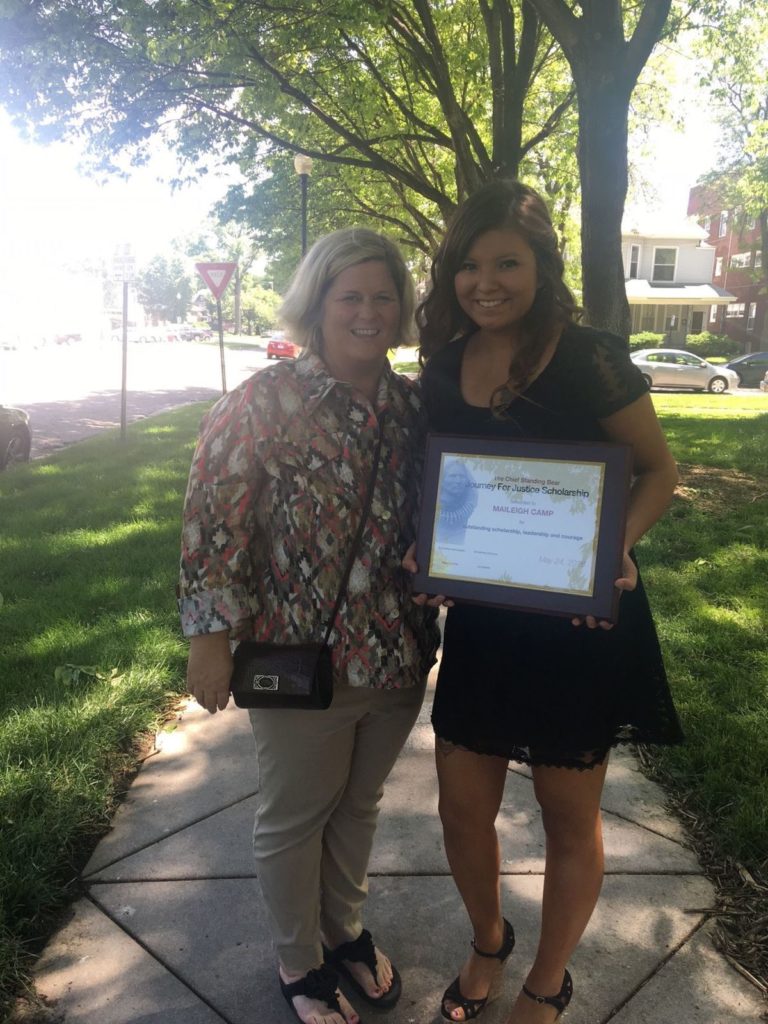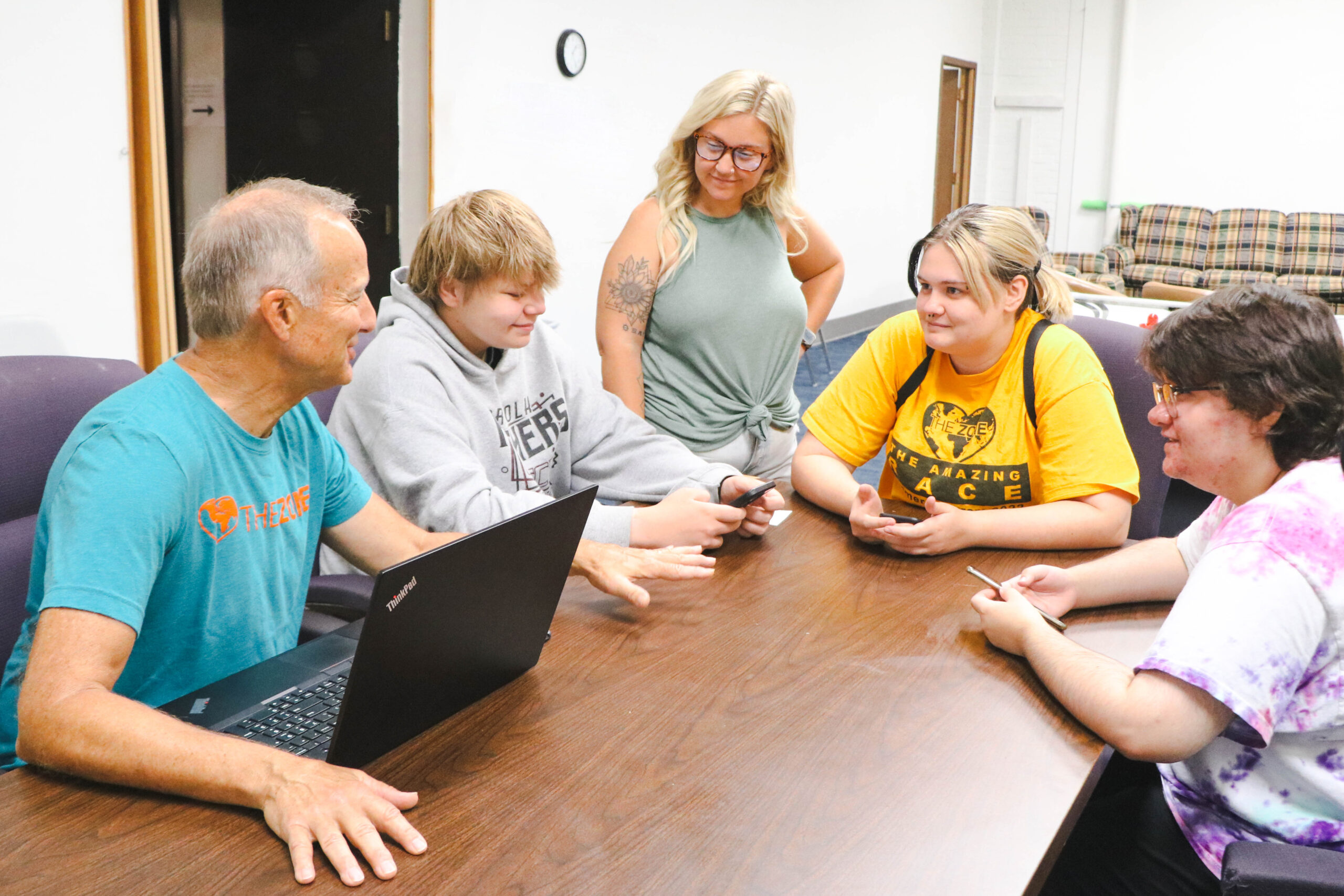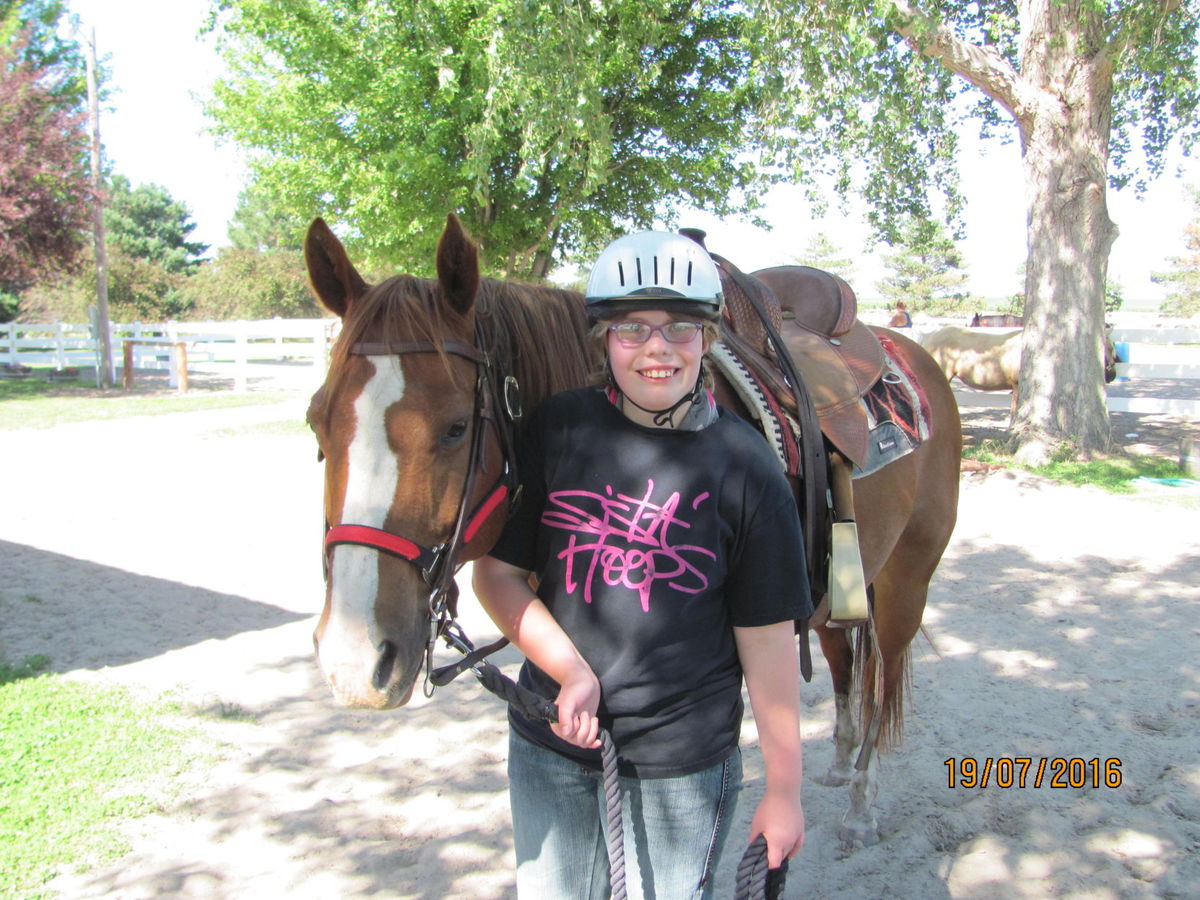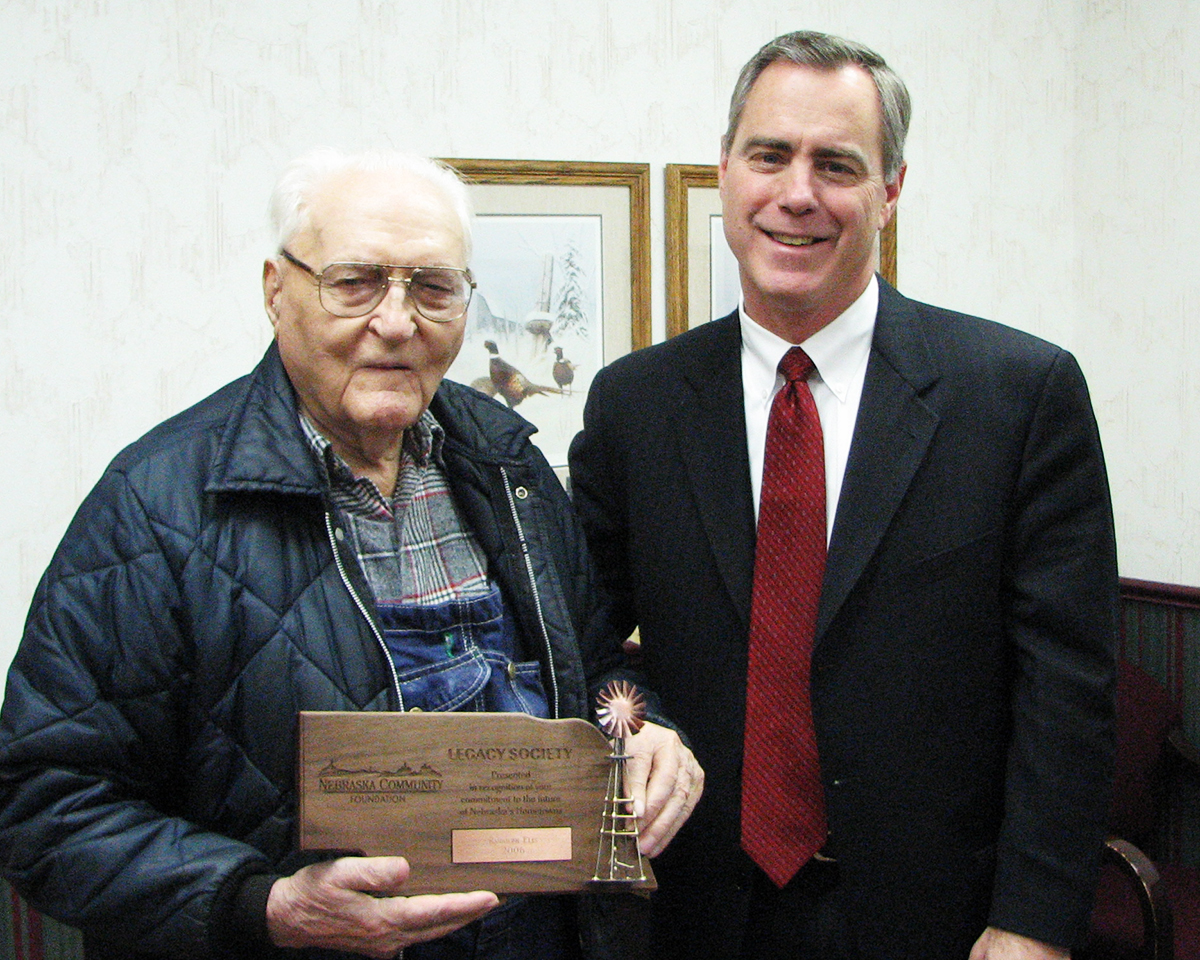
Of the 4,843 undergraduate students enrolled at the University of Nebraska-Kearney, Maileigh Camp is one of only six students who is Native American. A similar disparity exists on the campus of the University of Nebraska-Lincoln, where Native American students comprise only two-tenths of one percent of all undergraduates.
Maileigh is a 19-year-old Lakota woman, originally from the Rosebud Sioux Reservation in South Dakota. When she was growing up on the reservation, she didn’t go to school. Her mother was addicted to alcohol. She never knew her father.
Now a college sophomore majoring in criminal justice and minoring in psychology, she hopes someday to help kids who have faced tough times, like she did when she was a child.
Seven of her siblings were placed in foster care. “I am blessed to have been placed together with my half-sister when I was nine and she was seven,” Maileigh said. “Life with my adoptive white family in Lincoln was more stable. However, I lost all ties to my culture.”
She notes that in some social circles, it’s becoming “cool to be Native.” But most of that is appropriation of her culture without a genuine understanding of the struggle that comes with being Native American. In elementary school, Maileigh was shy and introverted, and was not able to participate in many of the opportunities her classmates from affluent families enjoyed. She admits that sometimes she wished she could disappear.
Maileigh was in middle school when her birth mother died of alcoholism. After that, she lost touch with everyone from her early childhood. Fortunately, she became acquainted with Kris Ross, a mentor to a small group of Native students at Lux Middle School. Ross helped Maileigh rediscover and identify with her Lakota culture, even though memories of her early childhood were often painful.
“I am thrilled and honored when I tell people I am Rosebud Lakota. There are not a lot of us, so I know I come from strong genes to have survived the past 250 years of death, disease and conflicts,” she said.
Neither of Maileigh Camp’s adoptive parents have more than a high school education, but Maileigh was determined to put herself through college. She worked long hours at fast food restaurants all through high school, and as a full-time student at UNK, she also works part-time at a daycare facility.
She has received some financial support, but the scholarship that has meant the most to her personally, is the one she was awarded through the Chief Standing Bear Journey for Justice Fund.
The scholarship fund was established in 2013 by Joe Starita, a professor at UNL in the College of Journalism and Mass Communications and author of three critically acclaimed books examining the role of Native Americans in U.S. history.
“Native American stories are often stories of great survival and inspiration – and I want to try to preserve and convey as many of them as possible. They were ripped from their homelands, stripped of their culture and expected to die out on the margins of society. But 200 years later, they are still here – which shows you how strong that culture is.
“And now it is up to this generation of Natives to keep that culture going, to maintain the values that have allowed them to survive. I wanted to help,” Starita said.
To fund the scholarship, Starita is contributing all the proceeds from two of his works, “I Am A Man: Chief Standing Bear’s Journey for Justice,” originally published in 2009, and “A Warrior of the People: How Susan La Flesche Overcame Racial and Gender Inequality to Become America’s First Indian Doctor,” published last year.
“I encourage all the Native American students to apply and to everyone to donate to this scholarship. It’s about more than the money; it’s about telling your story about overcoming hardships and proving Native Americans can and will prevail,” Maileigh said.
Open to Native American students, the scholarship fund is an endowed affiliate fund of Nebraska Community Foundation. Starita has made numerous presentations promoting the scholarship fund along with his books, and many individuals have contributed to help build the fund. Anyone can contribute to the scholarship fund here, and all contributions are tax deductible.
“I started the scholarship fund for Native American high school graduates, and we have awarded 13 so far. These are students who have all the academic chops; they just don’t have the money. I thought it would be a good thing to help these students find a profession that would generate a paycheck that could support a family and make them stakeholders in their community. And if they, in turn, can give something back to their communities – then all the better,” Starita said.
Maileigh hopes to realize that dream. “It really makes me sad that not as many Native Americans are as successful as they should be, she said. “I took a class in my freshman year that explored Native American issues. I learned about the very sad situation in Whiteclay. But I am of the generation to change this stereotype. I want to be part of a new success, not like my family of the past.
“Recently, I’ve made contact with my uncle I haven’t seen in over 10 years, and I’m excited listening to his stories. He can tell me about things we did – happy stories.
“He cried when we met and cried again when I showed him the only photo I have of him, my mom, and me at the park. I’m hoping he can tell me about my past and teach me our Native ways.
“I see the passion and the love he has for our tribe, and it’s inspiring. That’s what it means to be Native. To be proud, yearning for more, and excited for what I can do for other Native people in the future.”



